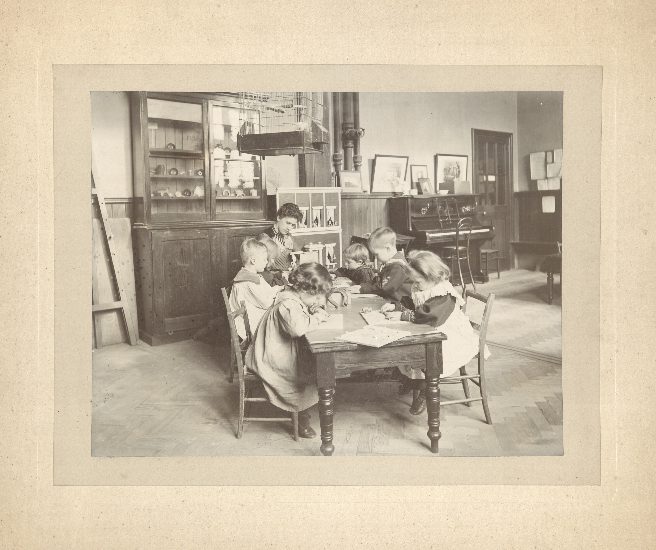Paper folding allows children to explore surface and area.
Paper folding is one of Froebel's Occupations - creative activities and experiences for young children.
"Through the Occupations, children can:
- represent, be inventive and engage creatively and imaginatively
- build their physical competencies
- make links to everyday life, nature, knowledge and understanding
- be empowered to move from the here and now to the abstract (so laying the foundations of literacy and mathematical understanding)
- develop dispositions and attitudes that will benefit them in the adult world of work."
Prof. Tina Bruce and Jane Dyke, Learning from Froebel (2017)
Creativity is about children representing their own ideas in their own way, supported by a nurturing environment and people.
As children's experience and skill using paper grows, they can transform it in more and more creative ways to represent their ideas, thoughts and feelings.
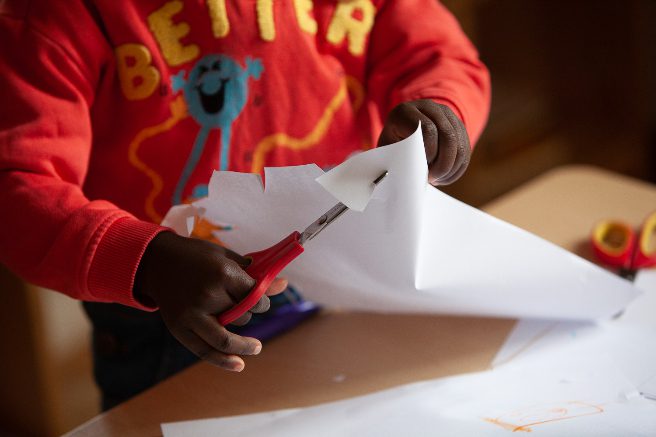
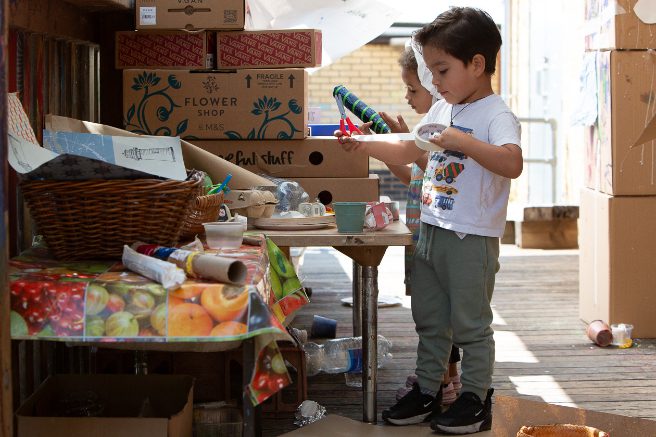
Paper folding helps children's mathematical thinking and develops an understanding of geometric patterns.
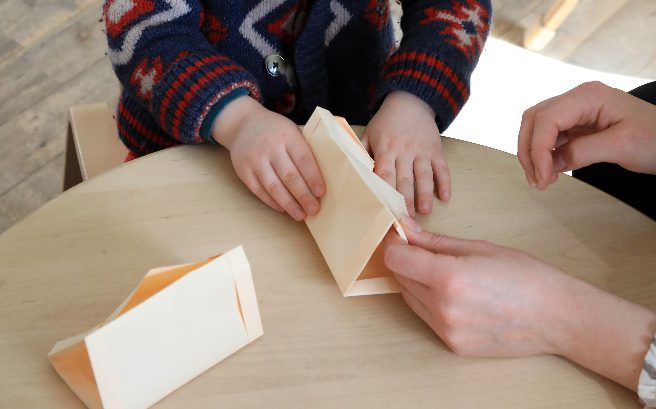
Making paper planes or 'helicopters' encourages the use of straight lines and folds, while weaving with paper strips gives children experience of working with a line that can bend and curl.
The Japanese tradition of origami was founded on Froebel's paper folding. Froebel recommended more complex 3D paper folding for older children - allowing them to learn how to transform a two-dimensional resource into a three-dimensional construction.
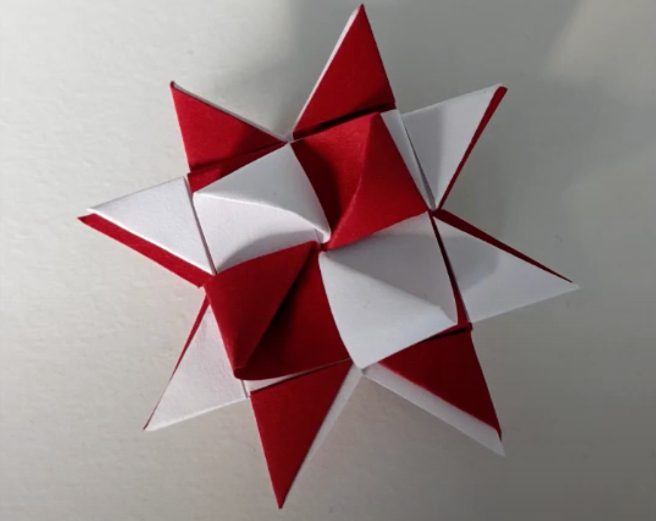
A collection of resources and guides for educators:
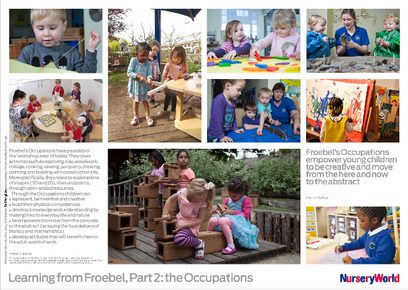
Download a free Occupations poster
First produced by Nursery World magazine, in association with Community Playthings, in 2017. This poster introduces the Froebelian Occupations. Free to download and display.
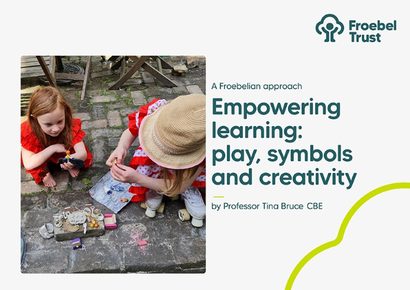
Play, symbols and creativity
Children's symbolic representation can be observed through a range of media - including paper folding. A free to download Froebel Trust pamphlet. Published in Sept 2023
To learn a thing in life and through doing is much more developing, cultivating and strengthening than to learn it merely through the verbal communication of ideas.
